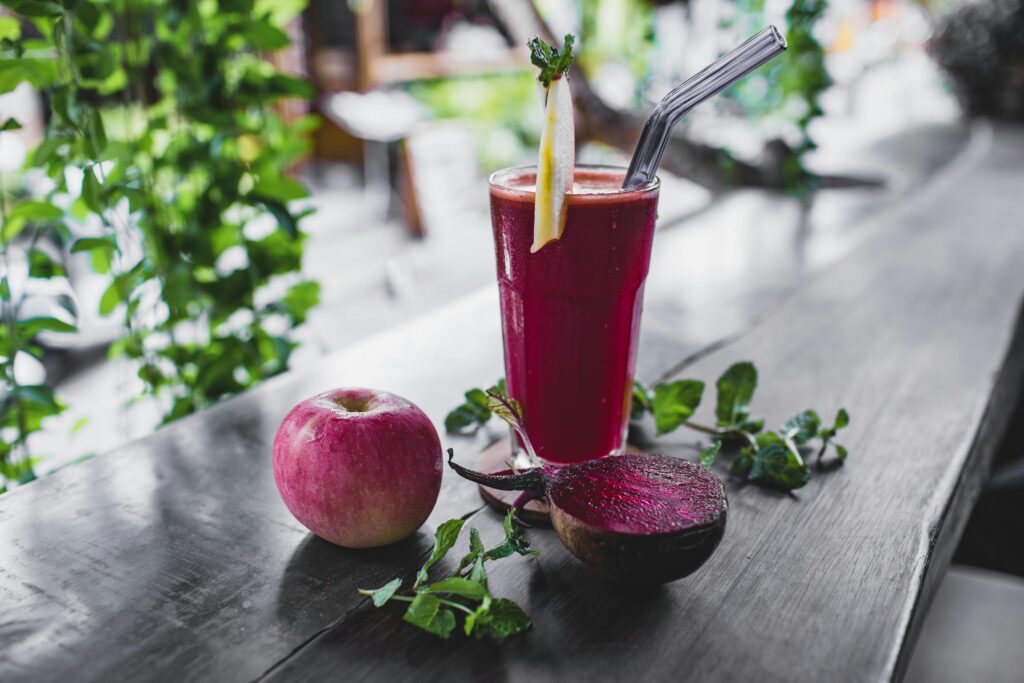The Detox Hype
You’ve probably seen it all over TikTok, Instagram, and YouTube: influencers chugging green juices, sipping on detox teas, or promoting 3-day cleanses to “reset your gut” or “melt away belly fat.” These flashy posts and transformation promises are hard to ignore. But here’s the thing—a lot of this content is built on shaky ground.
While the idea of flushing out toxins and boosting gut health sounds appealing, the truth is more complex. In fact, many popular detoxing trends not only lack scientific backing, but they may actually cause harm to your health. In this blog, we’ll unpack the myths, look at what science says, and explore safer, more sustainable ways to support your gut and overall wellness.
What Is a “Detox”?
In the wellness world, “detoxing” typically refers to using specific diets, drinks, or supplements that claim to remove toxins from the body. These detoxes often promise benefits like improved digestion, weight loss, clearer skin, and more energy.
But the term “detox” is rarely defined clearly by marketers. Which toxins are being removed? How? The answers are often vague or missing altogether. And that’s your first red flag.
The Misinformation vs. The Truth
Let’s break down some of the biggest claims trending on social media:
The Trend: “Gut cleanses,” juice fasts, and “bloat teas” claim to eliminate toxins and reset your body.
The Truth: Your body already has a powerful detox system in place. Organs like your liver, kidneys, lungs, skin, digestive tract, and lymphatic system do the hard work of filtering and excreting toxins 24/7. Many detox products don’t assist this process; instead, they may cause diarrhea or fluid loss, leading to dehydration, nutrient deficiencies, and electrolyte imbalances.
The Trend: Detox teas will help you lose weight and reduce bloating overnight.
The Truth: Most of these teas contain laxatives or diuretics, which lead to temporary water and stool loss—not fat loss. This can also disrupt your gut microbiome and lead to long-term digestive issues.
The Trend: Juice cleanses improve gut health.
The Truth: A 2025 study published in Nutrients found that a 3-day juice cleanse actually increased pro-inflammatory bacteria in the oral and gut microbiomes. These bacteria can release inflammatory molecules into the bloodstream and contribute to health problems like heart disease, diabetes, inflammatory bowel disease, and even some cancers.
The Body’s Built-In Detox System
Let’s break it down in everyday terms:
- Liver: Acts like your body’s chemical processing plant. It breaks down toxins into less harmful substances that can be eliminated.
- Kidneys: Filter waste from your blood and send it out via urine.
- Lungs: Remove gases like carbon dioxide when you breathe out.
- Skin: Sweats out small amounts of waste products.
- Digestive System: Eliminates solid waste through bowel movements.
- Lymphatic System: Carries away waste and toxins from tissues.
These organs function best when you fuel them properly—with nutrients, hydration, movement, and rest.
How Detox Trends Disrupt Gut Health
Your gut is home to trillions of microbes that play a huge role in digestion, immune function, and even mental health. A healthy gut microbiome thrives on fiber, diversity, and consistency. Detox trends often do the opposite:
1. Fiber Depletion
Juice cleanses eliminate the natural fiber found in whole fruits and vegetables. Fiber is essential because it feeds good gut bacteria that produce anti-inflammatory compounds.
Without fiber, these beneficial bacteria die off, and opportunistic, pro-inflammatory microbes can take over.
2. High Sugar Content
Juice-based detoxes are usually high in sugar, especially fructose. These sugars feed inflammation-promoting bacteria that thrive in low-fiber, high-sugar environments.
3. Laxatives and Diuretics
Many detox teas rely on ingredients like senna to stimulate bowel movements. This might give the illusion of cleansing, but you’re actually flushing out water, electrolytes, and good bacteria—disrupting your microbiome.
4. Repeated Detoxing = Microbial Instability
Doing multiple detoxes or cleanses can prevent your gut from ever reaching a stable balance. This encourages microbial imbalances (called dysbiosis), which are linked to chronic inflammation, weight gain, and a weakened immune response.
Real Research on the Risks
- 2025, Nutrients Journal: A juice cleanse increased pro-inflammatory bacteria in both the mouth and gut, raising the risk for systemic inflammation.
- 2024, JAMA Network Open: Certain herbal supplements commonly found in detox products (like turmeric, green tea extract, Garcinia Cambogia) were linked to liver toxicity.
These are just two examples of the many studies urging caution with unregulated detox products.
Research-Backed Detox Methods That Actually Support Your Body
Not all detoxes are harmful. Some approaches, especially when science-guided and personalized, can enhance your body’s natural detox processes.
- A 2023 study in Journal of Medicinal Food showed that a plant-based supplement and whole-food diet improved metabolic detox biomarkers and overall wellness.
- A 2024 study in the Journal of Integrative and Complementary Medicine found that an online Ayurveda-based detox and lifestyle program improved well-being and health markers.
These programs emphasized nutrition, stress management, and gradual lifestyle changes rather than extreme restriction.
How to Spot a Legit Detox Product (and Avoid the Fads)
Here are some questions to ask before trying any “detox” product:
- Is there peer-reviewed scientific research supporting its claims?
- Are the ingredients clearly listed and researched?
- Does it use fear-based marketing like “eliminate deadly toxins!”?
- Are there certifications from reputable organizations?
- Does it promise fast results or dramatic transformations? (Red flag!)
Avoid any product that lacks transparency, uses vague claims, or seems too good to be true.
What Actually Works for Gut Health and Weight Support
Here’s what the research does support:
- Adequate sleep: Rest is essential for gut and metabolic health.
- Hydration: Helps kidneys and digestion work efficiently.
- Prebiotics and probiotics: Found in foods like garlic, onions, yogurt, and fermented foods.
- Balanced diet: Whole foods, less sugar, healthy fats, and plenty of fiber.
- Manage stress: Chronic stress alters gut microbiota and slows metabolism.
- Exercise regularly: Supports digestive movement and reduces inflammation.
- Know your body: Address food intolerances or sensitivities with a professional.
Final Thoughts: Be Informed, Not Influenced
Your gut and your health are not one-size-fits-all. Social media is great for discovering new ideas, but it shouldn’t be your primary source of health advice.
New studies are published every year, and while some detox methods show promise, many are untested or even dangerous. Always do your research, consult with your healthcare provider, and make informed decisions tailored to your body’s unique needs.
Education is empowerment. The best choice you can make for your health is an educated one.


